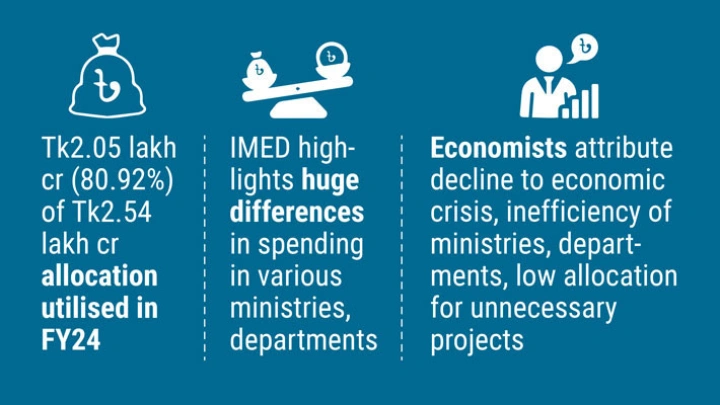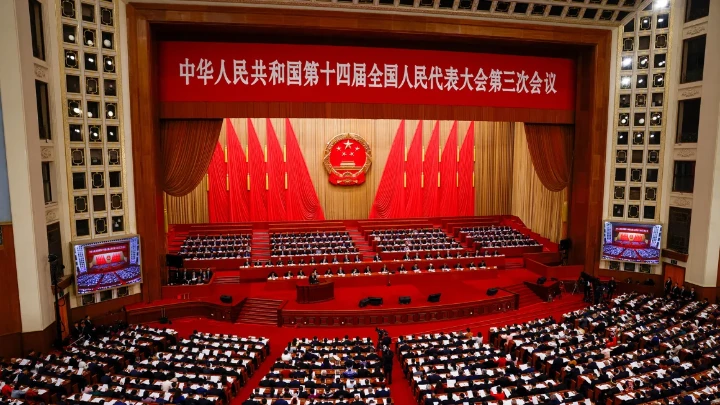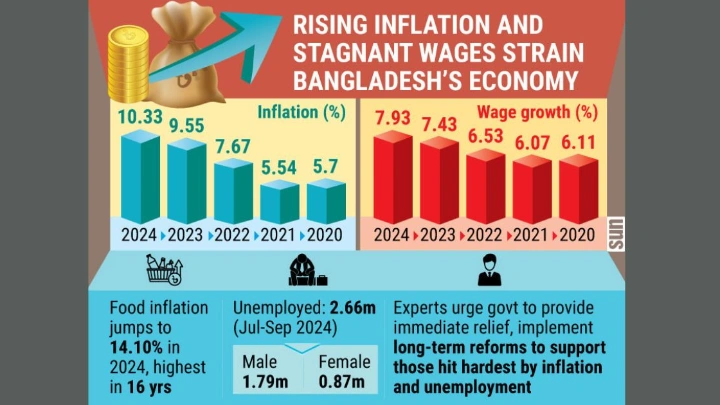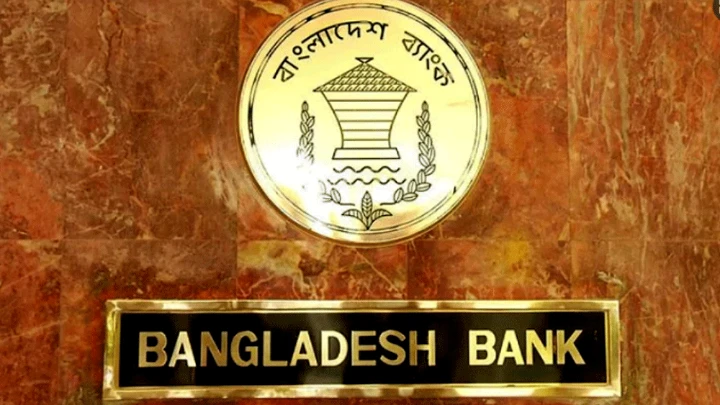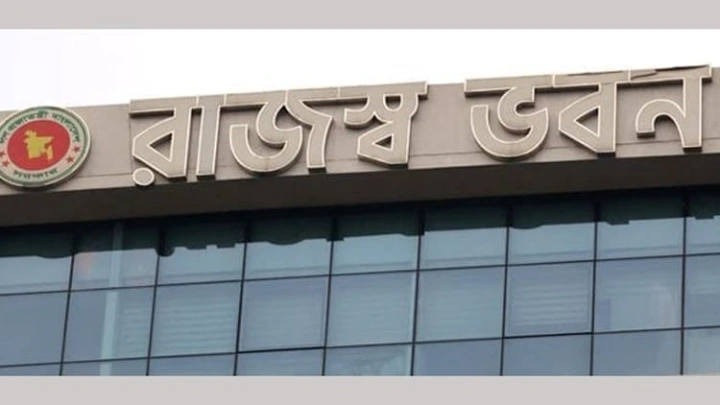ADP implementation lowest since COVID-19 outbreak
DailySun || Shining BD
The implementation rate of Bangladesh’s Annual Development Programme (ADP) hit the lowest since the COVID-19 outbreak, with only 80.92% of the allocated budget utilised in the fiscal year 2023-24, according to the latest report of the Implementation Monitoring and Evaluation Division (IMED) under the Ministry of Planning published on Tuesday.
Economists attribute the decline to the ongoing economic crisis, which has severely impacted the country’s ability to execute its development budget. They also point to inefficiencies of ministries and departments, noting that a lack of coordination often leads to rushed project implementations towards the end of a fiscal year, resulting in unmet targets.
The IMED report reveals that the revised ADP allocation for FY24 was around Tk2.54 lakh crore, of which around Tk2.05 lakh crore was spent. This marks the lowest implementation rate since the fiscal year 2020-21, when the outbreak of the COVID-19 pandemic severely disrupted economic activities.
The report also highlights huge differences in spending in various ministries and departments. For example, while the Ministry of Industries exceeded its allocation, achieving an implementation rate of 118.10%, the Election Commission lagged far behind with a spending rate of just 34.79% of the allocation.
Spending from the government’s own fund was also below expectations, with only 76.87% of the allocated Tk1.615 lakh crore being utilised.
The rate of foreign debt expenditure, however, was slightly better at 86.19%, with Tk71,973 crore spent out of the allocated Tk83,500 crore.
In a single month – June 2024 – the ADP implementation stood at 23.38%, slightly lower than the previous year but still significantly lower than in earlier years.
Sectoral analysis
The Energy and Mineral Resources Division surpassed its allocation, spending Tk4,187 crore against around Tk3,881 crore allocation, achieving a 107% implementation rate.
The Power Division similarly exceeded its budget, spending Tk30,609 crore against an allocation of Tk30,063 crore, translating to 101.82% implementation.
In contrast, the Financial Institutions Division utilised only 48.83% of its allocated Tk386 crore, while the Internal Resources Division fared worse with a 38.23% implementation rate.
The Ministry of External Affairs, which had a zero implementation rate in the previous fiscal year, showed significant improvement, achieving a 98.65% implementation rate for its seven projects in FY24.
Zahid Hussain, a former lead economist at the World Bank’s Dhaka office, said the decline in ADP implementation could be positive, as it may signal a move away from unnecessary projects. “We need to review the entire ADP. Unnecessary projects should be eliminated and important ones should be prioritised,” he told the Daily Sun.
IMED Secretary Abul Kashem Md Mohiuddin acknowledged that the overall implementation rate was disappointing but pointed out that the reduction in spending on less important projects was a strategic decision. “The implementation rate has dropped mainly due to the reduction in the amount of money allocated to less critical projects,” he explained.
Shining BD

